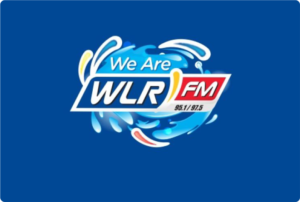
Reducing waste and mitigating climate impact at festivals is essential for a more sustainable and environmentally friendly event. Here are some tips to help you achieve that goal:
- Promote Reusable Items: Encourage festivalgoers to bring reusable water bottles, food containers, and utensils. Provide water refill stations and set up designated areas for washing reusable items.
- Minimize Single-Use Plastics: Avoid single-use plastics like straws, cups, and cutlery. Instead, opt for biodegradable or compostable alternatives or encourage attendees to bring their own.
- Waste Separation: Implement a clear waste separation system with well-labeled recycling, composting, and trash bins. Educate attendees on how to properly dispose of their waste.
- Sustainable Food Options: Collaborate with vendors who offer locally sourced, organic, and sustainably produced food. Minimize food waste by planning portions carefully and donating excess food to local charities.
- Green Energy Sources: Power the event with renewable energy sources such as solar panels or wind turbines to reduce carbon emissions.
- Carbon Offsetting: Calculate the event’s carbon footprint and invest in carbon offset projects to neutralize the emissions generated.
- Eco-Friendly Transportation: Encourage attendees to carpool, bike, or use public transportation to reduce the event’s transportation-related emissions.
- Sustainable Merchandise: If selling merchandise, offer eco-friendly options like organic cotton T-shirts, reusable bags, or upcycled products.
- Eco-Friendly Decor: Use decorations made from sustainable materials or repurpose decorations from previous events. Minimize the use of balloons and other non-biodegradable decorations.
- Environmental Education: Organize workshops, talks, or exhibits about environmental conservation and climate change to raise awareness among attendees.
- Waste Reduction Incentives: Offer rewards or discounts to attendees who actively participate in waste reduction initiatives, such as bringing reusable items or properly disposing of their waste.
- Collaborate with Local Organizations: Partner with local environmental groups or waste management organizations to improve waste collection and disposal strategies.
- Leave No Trace: Emphasize the “leave no trace” principle, encouraging attendees to clean up after themselves and respect the environment.
- Green Cleaning Practices: Use environmentally friendly cleaning products and methods to maintain cleanliness at the festival grounds.
- Eco-Friendly Art Installations: Incorporate art installations that highlight environmental issues and promote sustainability.
- Water Conservation: Implement water-saving measures, such as using low-flow faucets and encouraging responsible water usage.
- Offset Travel Emissions: Provide information to attendees about options for offsetting the carbon emissions from their travel to the festival.
- Continuous Improvement: Regularly evaluate the festival’s environmental impact and waste management strategies, and seek feedback from attendees to make ongoing improvements.
By implementing these tips, you can help minimize waste and reduce the climate impact of festivals while creating a more enjoyable and sustainable experience for attendees.


